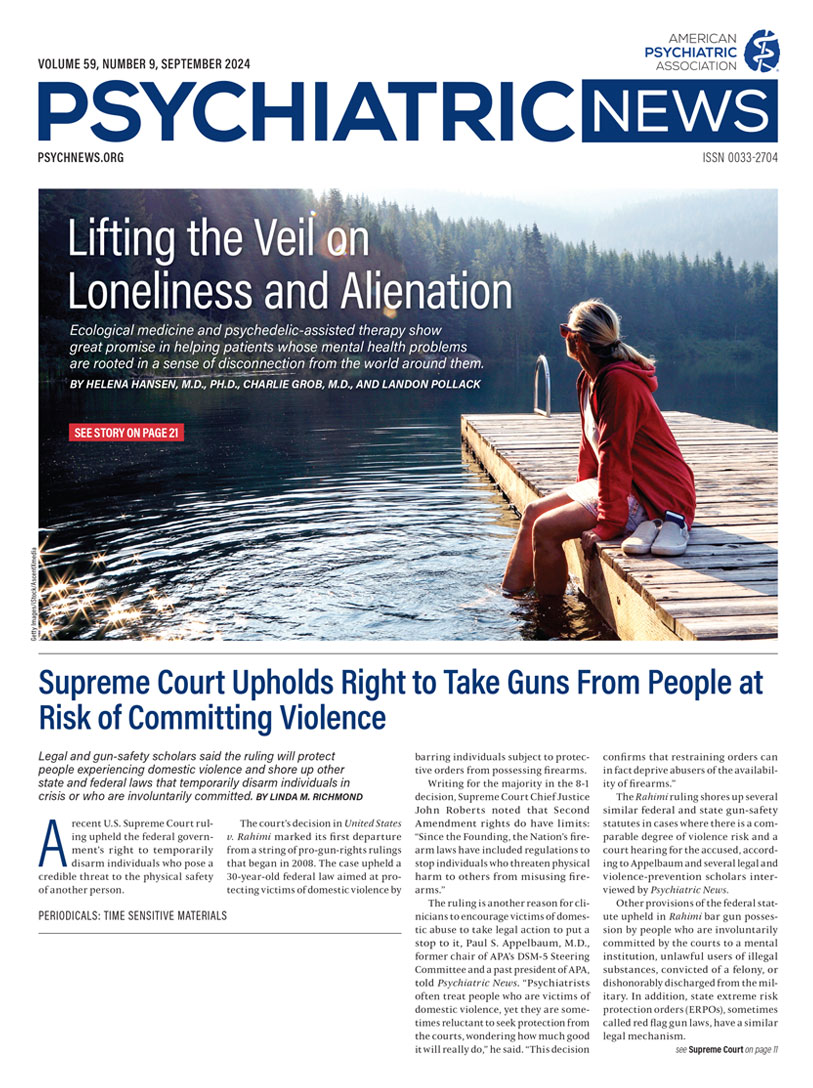Forensic psychiatrists are often called on to evaluate someone who may be involved in criminal activity, custody disputes, disability or workers’ compensation, mental capacity evaluation, fitness for duty, or requests for school accommodations, to name a few possibilities. In each case, the psychiatrist is bound by ethical principles of psychiatry and the law. Therefore, it is important to take on the role with a clear understanding of the parameters of liability exposure.
Informed Consent
The psychiatrist should provide the person being evaluated with an informed consent document that discusses the evaluation process. They should explain to the evaluee their role as an independent evaluator, as opposed to a treating provider, and clearly state there is no doctor-patient relationship being established.
As a result, forensic evaluators should not agree to evaluate existing patients. Additionally, it is important to determine upfront the potential for future testimony and who is responsible for paying.
Confidentiality
While psychiatrists are bound by HIPAA and confidentiality laws, given the nature of the evaluation, the evaluee needs to understand that third parties such as the court, an insurance company, or the evaluee’s employer may receive the final evaluation report. As a result, it is important for the psychiatrist to determine upfront who is deemed the client.
If the evaluee is not considered the client, they need to understand that the client—for example, the requesting attorney—may be the party who needs to consent for the release of the report to them. Forensic evaluators are not bound by the same privilege as those treating patients.
Subpoenas/Court Orders
If an attorney plans to call a forensic evaluator as an expert witness in a hearing or trial, the expert will usually receive a subpoena, which will indicate the date(s) when they are expected to appear in court. When receiving a subpoena and/or court order, it is important to understand whether an evaluator is being called to provide documentation or to testify to their findings.
Depending on the agreement between the forensic evaluator and the party who retained them, certain documentation, reports, and findings may fall within attorney-client privilege. It is crucial to discuss all legal notices with an attorney before proceeding.
Risk Management Strategies
Forensic evaluators should always follow best practices from the initial meeting until the conclusion of their duties. Here are some helpful tips when agreeing to become a forensic evaluator:
•
Consult state and local ethical and legal guidelines before agreeing to serve as an evaluator.
•
Determine upfront who your client is, to whom you may release information, and what information may be released.
•
Confirm the evaluee understands that a forensic evaluator is not bound by the same doctor-patient privilege and that the evaluator is not providing a clinical therapeutic assessment.
•
Create and distribute clear policies and procedures setting forth the rules of practice.
•
Remember that objectivity is essential in a forensic psychiatric evaluation.
•
Note that the evaluator may be called to provide their notes, reports, and testimony, and that they are not bound by traditional rules of privilege.
•
Do not provide evaluations on a contingency basis, and have a clear financial agreement in writing.
•
If subpoenaed for document production or testimony, consult your attorney immediately and refrain from contacting the evaluee or any other party.
•
Ensure adherence to the judge’s rules and directions at all times. ■
This information is provided as a risk management resource for Allied World policyholders and should not be construed as legal or clinical advice. This material may not be reproduced or distributed without the express, written permission of Allied World Assurance Company Holdings Ltd, a Fairfax company (“Allied World”). Risk management services are provided by or arranged through AWAC Services Company, a member company of Allied World. © 2024 Allied World Assurance Company Holdings Ltd. All rights reserved.
